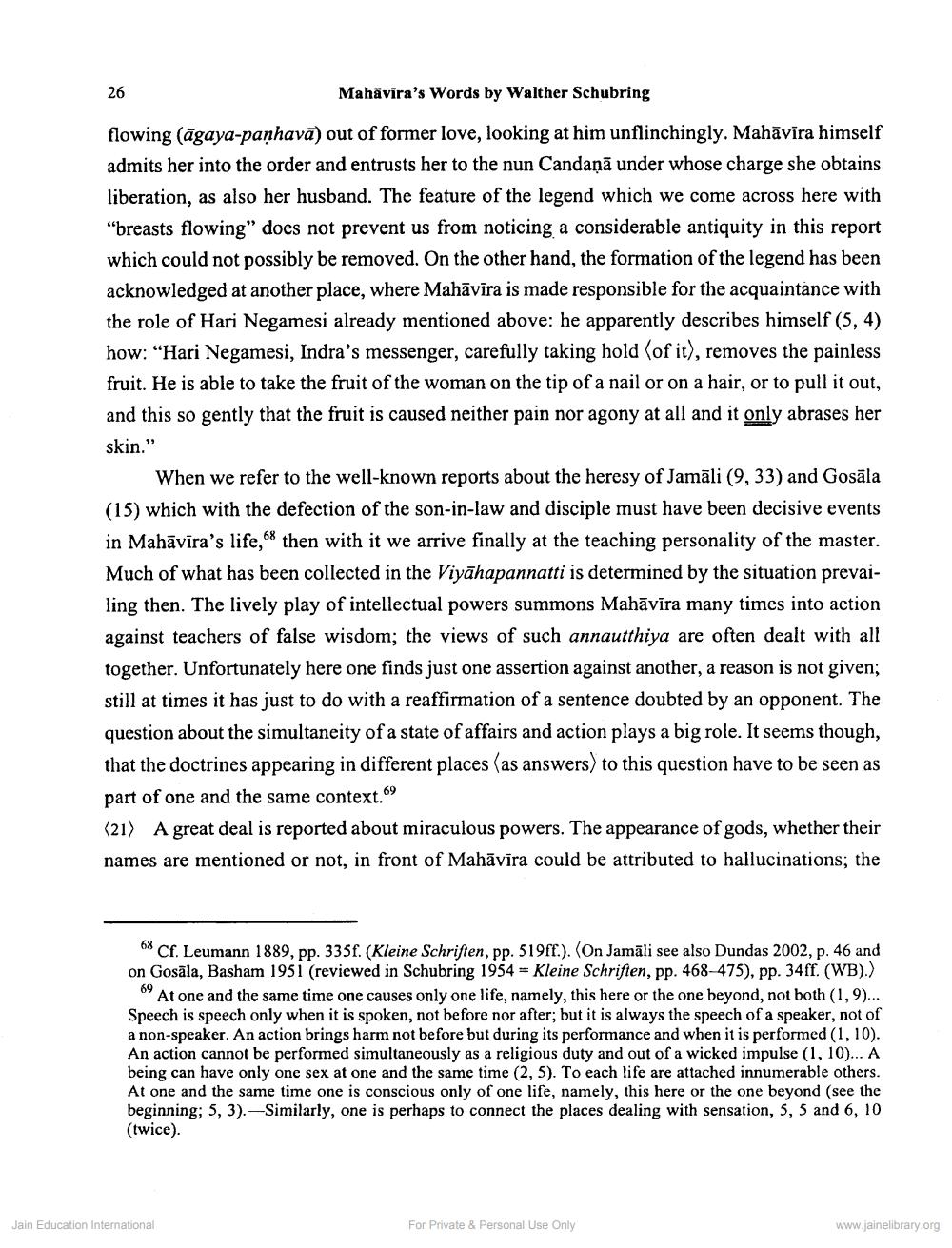________________
26
Mahavira's Words by Walther Schubring
flowing (āgaya-panhavā) out of former love, looking at him unflinchingly. Mahāvīra himself admits her into the order and entrusts her to the nun Candaņā under whose charge she obtains liberation, as also her husband. The feature of the legend which we come across here with "breasts flowing" does not prevent us from noticing a considerable antiquity in this report which could not possibly be removed. On the other hand, the formation of the legend has been acknowledged at another place, where Mahāvīra is made responsible for the acquaintance with the role of Hari Negamesi already mentioned above: he apparently describes himself (5, 4) how: "Hari Negamesi, Indra's messenger, carefully taking hold (of it), removes the painless fruit. He is able to take the fruit of the woman on the tip of a nail or on a hair, or to pull it out, and this so gently that the fruit is caused neither pain nor agony at all and it only abrases her
skin."
When we refer to the well-known reports about the heresy of Jamāli (9,33) and Gosāla (15) which with the defection of the son-in-law and disciple must have been decisive events in Mahāvīra's life, then with it we arrive finally at the teaching personality of the master. Much of what has been collected in the Viyāhapannatti is determined by the situation prevailing then. The lively play of intellectual powers summons Mahāvīra many times into action against teachers of false wisdom; the views of such annautthiya are often dealt with all together. Unfortunately here one finds just one assertion against another, a reason is not given; still at times it has just to do with a reaffirmation of a sentence doubted by an opponent. The question about the simultaneity of a state of affairs and action plays a big role. It seems though, that the doctrines appearing in different places (as answers) to this question have to be seen as part of one and the same context.69 (21) A great deal is reported about miraculous powers. The appearance of gods, whether their names are mentioned or not, in front of Mahāvīra could be attributed to hallucinations; the
68 Cf. Leumann 1889, pp. 335f. (Kleine Schriften, pp. 519ff.). (On Jamāli see also Dundas 2002, p. 46 and on Gosāla, Basham 1951 (reviewed in Schubring 1954 = Kleine Schriften, pp. 468-475), pp. 34ff. (WB).)
69 At one and the same time one causes only one life, namely, this here or the one beyond, not both (1,9)... Speech is speech only when it is spoken, not before nor after, but it is always the speech of a speaker, not of a non-speaker. An action brings harm not before but during its performance and when it is performed (1,10). An action cannot be performed simultaneously as a religious duty and out of a wicked impulse (1, 10)... A being can have only one sex at one and the same time (2, 5). To each life are attached innumerable others. At one and the same time one is conscious only of one life, namely, this here or the one beyond (see the beginning; 5, 3). Similarly, one is perhaps to connect the places dealing with sensation, 5, 5 and 6, 10 (twice).
Jain Education International
For Private & Personal Use Only
www.jainelibrary.org




